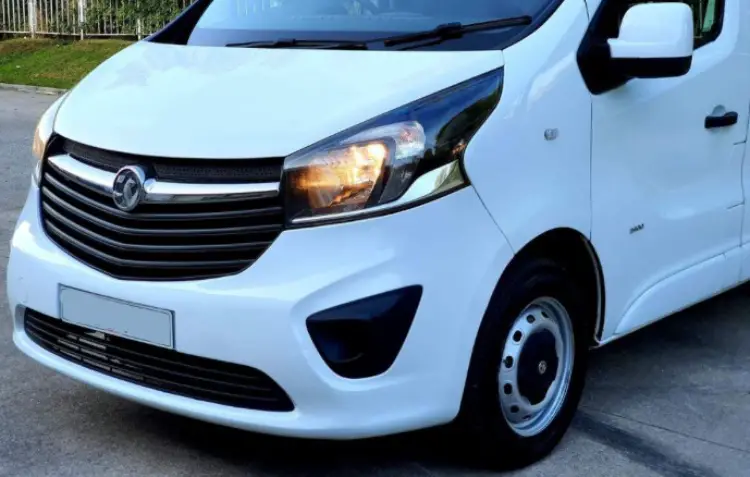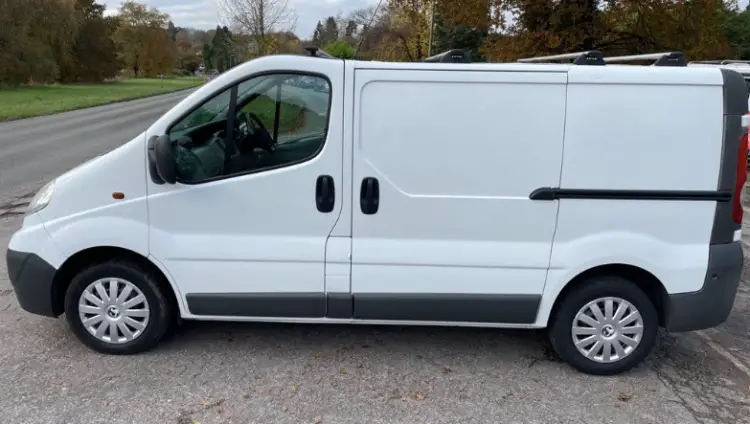
The Vauxhall Vivaro is not the most powerful midsized van, but it is a nice vehicle to drive as it has good handling. A survey of the UK’s biggest leasing companies by Fleet News found that the Vauxhall Vivaro ranked in the top 10 most reliable vans, but forums suggest that owners experience some common problems on older models.
The 2.0 dCi M9R diesel engine on the Vivaro has had some problems with a failed bonnet catch that has led to corrosion between the cylinder head and the injectors on many vans. Other issues such as gear linkage issues are also commonly reported.
Second generation Vivaro vans produced after 2014 are more robust, with its partnering with Renault leading to improvements and fewer Vauxhall Vivaro problems. As a British made van, built at the Luton factory, you can expect a high level of production and the benefit of good assembly in newer models.
Are Vauxhall Vivaros reliable?
Larger vans like the Vauxhall Vivaro will always come with some problems in older models with the suspension and electrics needing checking before any purchase. Vivaros were first produced in 2001 but in 2014 Vauxhall’s collaboration with Renault contributed to a better build in more recent models that has made them far more reliable.
Despite its good reputation, it is worth noting that owners and buyers have found issues with the bonnet seal, corrosion, gear linkage problems and the cam chain in older models. Fortunately, many Vauxhall Vivaro problems can be easily resolved with a large dealer network and easily available parts.
Vauxhall Vivaro Common Problems
If you are considering buying a Vauxhall Vivaro, especially an older used van, you will want to know what issues to look out for. Often tackling a problem early can stop it causing more damage. Let’s take a peek at the most common Vauxhall Vivaro problems.
Vauxhall Vivaro Problems Starting
Starting problems on Vivaros are often caused by different sources. A common problem faced by Vivaro owners is an accelerator that doesn’t respond. Vauxhall even released a bulletin warning about wear on the injectors that reduced fuel pressure preventing the van to be revved.
Often the starter motor will fail to spin adequately, and this will need replacing. To check whether the starter motor is working adequately you can connect a voltmeter to the small terminal on the starter solenoid. If it shows 12 volts when you turn to the start position, then the starter has a problem and should be replaced. No voltage indicates that you need to look to a faulty ignition switch or wiring from switch to starter to resolve the issue.
Vauxhall Vivaro Turbo faults
Turbo faults are common Vauxhall Vivaro problems. A faulty turbocharger will cause your van to go into limp mode and lose acceleration and power. Many owners report this kind of problem and often the only way to solve it is to replace the turbo.
Some owners experience a problem with the glow plug lights when they accelerate past 60 mph. This would indicate that the EGR needs cleaning or replacing. In my experience, many turbo problems are caused by shorts in the wiring. Another known fault is the turbo pressure switch controlled by the turbo pressure sensor. Diagnostics will need to be run to analyse the fault code.
Vauxhall Vivaro Electrical Problems
Individual electrical faults or a major power loss is a very troubling issue since it will affect the dash electronics, lights, windows, locking and engine starting. On the Vivaro, this will often be caused by poor battery connections that have corroded. This is due to exposure from the elements because of the battery being seated underneath a metal panel on the floor. Together with the bonnet catch issue, corrosion in the engine is a common problem.
To solve the problem, you will need to strip everything back and clean all the connections before greasing them to prevent future corrosion. You will also need to fix any source of exposure such as the bonnet catch.

Vauxhall Vivaro 2.0 CDTi Engine Problems
The 2.0 dCi M9R diesel engine model has one of the most talked-about common Vauxhall Vivaro problems. Unfortunately, they were predisposed to rainwater dripping from a failed bonnet seal at the base of the windscreen. Corrosion built up between the fuel injectors and the cylinder head.
Other problems with this engine model seem to involve a commonly described kangarooing which occurs between 2.5 and 3K rpm. The noticeable stutter can be caused by a variety of problems that need diagnostics to isolate but usually occur due to either wiring, pins or connection faults.
Vauxhall Vivaro 1.6 Biturbo Common Problems
The high power 1.6-Biturbo engine is the first of the twin-turbo engines and the one that delivered the Vivaro’s best fuel economy. With 340Nm of torque, it has a strong performance and a smooth engine.
Unfortunately, the downside of this model is the complex twin-turbo system that often ends up with a whining noise signalling a failure. The fix is never easy, and the cost will be much higher than a single turbo model. Other owners report a common problem with the clutch sticking on this model.
How many miles can a Vauxhall Vivaro last?
Many owners report that their Vivaro vans are still going strong at 300,000 miles but whilst this indicates an engine that is built to last you should expect to need to replace some parts if that has not already been done.
Check the alternators, power steering pumps and cam chain as well as look at the condition of the suspension, bodywork and chassis if you are buying a second-hand van. As always, the condition and reliability of a used van will completely depend on how it has been looked after. Ex-lease models can make economical purchases as they will have had regular servicing.
Look out for the 1.6 diesel engine as this has a particularly good performing engine. Don’t forget to take care of Vauxhall Vivaro problems early to reduce any further damage to the van and keep it on the road for even longer.
